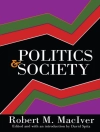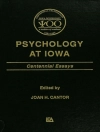Antirealist views about morality claim that moral facts or truths do not exist. Do these views imply that other types of normative facts, such as epistemic ones, do not exist? The Normative Web develops a positive answer to this question. Terence Cuneo argues that the similarities between moral and epistemic facts provide excellent reason to believe that, if moral facts do not exist, then epistemic facts do not exist. But epistemic facts, it is argued, do exist:to deny their existence would commit us to an extreme version of epistemological skepticism. Therefore, Cuneo concludes, moral facts exist. And if moral facts exist, then moral realism is true. In so arguing, Cuneo provides not simply a defense of moral realism, but a positive argument for it. Moreover, this argument engages with a wide range of antirealist positions in epistemology such as error theories, expressivist views, and reductionist views of epistemic reasons. If the central argument of The Normative Web is correct, antirealist positions of these varieties come at a very high cost. Given their cost, Cuneo contends, we should find realism about both epistemic and moralfacts highly attractive.
Terence Cuneo
Normative Web [EPUB ebook]
An Argument for Moral Realism
Normative Web [EPUB ebook]
An Argument for Moral Realism
购买此电子书可免费获赠一本!
语言 英语 ● 格式 EPUB ● ISBN 9780191614811 ● 出版者 OUP Oxford ● 发布时间 2010 ● 下载 6 时 ● 货币 EUR ● ID 2275626 ● 复制保护 Adobe DRM
需要具备DRM功能的电子书阅读器












